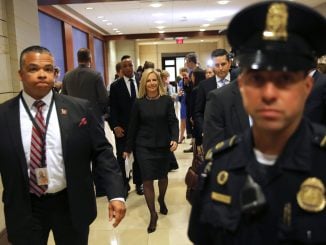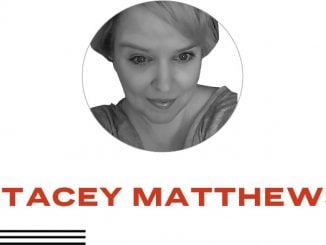RALEIGH — The North Carolina State Board of Elections has recently faced criticism for changing the deadline for counties to submit early voting site plans, shifting it from Aug. 2 to May 7 without explanation.
In early April, North Carolina State Board of Elections (NCSBE) Director Karen Brinson Bell sent a letter to all 100 county boards of election notifying them the early voting site plans (EV Plans) would be due in May instead of August.
The letter noted EV Plans historically are not submitted until August or even early September; Between 2016 and 2022 the earliest date was Aug. 5.
The sudden shift imposes challenges on county election boards, especially in rural areas, affecting their ability to plan and secure early voting sites.
Additionally, County Boards operating budgets aren’t set yet as those boards won’t see their fiscal year begin until July 1. The move will have the effect of forcing those county boards to enter into contracts to secure sites before their budgets are set.
The date alteration prompted a complaint from the North Carolina Republican Party (NCGOP) alleging partisan motives. In a letter by NCGOP Chairman Jason Simmons, the NCSBE’s move was labeled as “highly unusual and questionable.”
Simmons highlighted suspicions of partisan manipulation, alluding to an end-run around the new elections provisions in Senate Bill 749, titled “No Partisan Advantage in Elections.”
“As approved by the General Assembly, SB 749 would restructure the State and County boards of elections to have no partisan advantage,” Simmons wrote. “This means the elections boards must then work to find consensus on all matters that come before them, including the site plans for early voting.
“Current law gives Democrats a 3-2 advantage at both the State and County level. In acting on general election site plans now, the State Board is acting with clear partisan intent. That is not only unprecedented, but wrong.”
The law increases the number of NCSBE members from five to eight with all members appointed by the General Assembly. The law also reduces the number of members on local boards of election.
SB 749 became law following an override of Gov. Roy Cooper’s veto and is currently the subject of litigation.
On April 17, Carolina Journal reported on the NCGOP’s letter and that the NCSBE had quietly updated its master schedule by removing the previous August deadline for EV Plans and replacing it with the May date.
“Shortly following an NCGOP press release that was published Tuesday morning, the NCSBE’s 2024 master calendar was modified to reflect the updated deadline instructed in Bell’s email,” Carolina Journal reported. “Screenshots and timestamps show that the calendar was changed to list the new May 7 deadline, and ‘best practice’ was removed entirely.”
The “best practice” for EV Plans on the NCSBE website states a timeframe of, “5 weeks before absentee ballots made available.”
That same day as the report on the master schedule, Brinson Bell appeared before the Joint Legislative Elections Oversight Committee. Near the end of the hearing, Sen. Warren Daniel (R-Burke) asked Brinson Bell about why the dates were moved back 180 days “over the objections of so many local boards.”
Brinson Bell responded that it was the idea of the NCSBE Chair Alan Hirsch, a Democrat appointed to the NCSBE by the governor in May 2023.
“The decision to call the meeting, therefore, to call the plans to be submitted by May 7 by the county boards of elections, was the decision of the state board chair,” said Brinson Bell. “He does get to set the agenda; he does get to call the meetings.”
Brinson Bell later went on to say, “The rationale from the chair has been that, you know, there is the potential for uncertainty for there to be changes in our election processes.”
She also claimed the change was “not a big lift,” and that the May primary was an “opportunity for (local boards) to go over their early voting plans. She also claimed, “The sites or the number of sites have been identified in their budget process.”
Brinson Bell characterized the date change as “a very administrative thing” while acknowledging “there may be precedence” for the typical EV Plans timeline, but said, “it doesn’t mean that we can’t change things.”
North State Journal reached out to Hirsch about Brinson Bell’s claims but received no response before publication.
Brinson Bell also rebuffed the idea there was widespread pushback, stating, “We’ve had very limited negative response from the counties.”
At least one county director and one NCSBE board member are unhappy with the move.
In a response to Brinson-Bell’s notification to the counties, Alexander County Director Patrick Wike said, “The State Board is deviating from historical precedent.” He went on to say the NCSBE was “blindsiding counties” by moving the deadlines back three months ahead of established time tables while counties were dealing with the second primaries to be held on May 14.
“Part of my job as a state board member is to promote confidence and the integrity of our election system,” NCSBE Board Member Kevin Lewis told WBT Radio host Pete Kaliner in an April 4 on-air interview. “And so it is disappointing actions are perceived to be partisan when we really need to be either nonpartisan or bipartisan in administering elections.”
Brinson Bell was also asked about the apparent shortcomings in initiating the ballot signature verification pilot, as mandated by another recent election law (Senate Bill 747). That law requires 10 counties to run a pilot during the 2024 Primary season.
Brinson Bell’s presentation at the hearing claims a vendor selection is coming, but she also blamed the missed deadlines on “difficulty” finding a suitable vendor despite 31 other states having voter verification systems in place that the NCSBE could inquire with.
Brinson Bell was previously questioned by lawmakers over voting processes and absentee ballots during the 2020 pandemic election cycle.
During her testimony at that time, she omitted that she had received an offer from a Democrat-linked organization to pay for an absentee ballot portal powered by “Democracy Live.”
While the offer was not accepted, emails obtained by North State Journal showed a representative of Democracy Live and NCSBE staffer discussing possible available grant money being offered through Tusk Philanthropies that could “fund 80-90% of the cost.”



